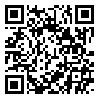Tarbiat Modares University , m.rasouli@modares.ac.ir
Abstract: (1972 Views)
Iraq is considered the most important part of Iran's foreign policy. For Iranian policymakers, Iraq is a more critical and therefore more sensitive operational theater than other countries where Iran supports local militia groups. History has shown that events in Iraq can have important consequences for Iran's stability. Iraq continues to be a threat to Iran's national security, and that is why Iran seeks to shape Iraq's internal policy and strategic direction. Since 2003, Iran has skillfully infiltrated the Iraqi Shia population by taking advantage of the long common borders and cultural, religious and economic relations with Iraq. Iran's influence is multifaceted and includes access to a wide range of political and social actors. Therefore, this research seeks to investigate the different factors of geoculture in Iran-Iraq relations. To achieve this goal, descriptive-analytical method and Wizard software were used. The findings of the research showed that the divergent factors in geoculture relations between Iran and Iraq were in critical and semi-critical conditions. The robust scenario board consists of 8 different possible situations. Out of these 8 possible situations, 3 are critical, 1 is semi-critical, 1 is static, 2 are semi-optimal, and 1 is optimal. Meanwhile, it should be stated that the majority of Iranian and Iraqi citizens have a common religion, and that is Shia Islam. Hozas or seminaries in the religious cities of Qom in Iran and Najaf in Iraq are centers of Shiite education. However, they were developed under two distinct and competing traditions. Therefore, this factor could be used to improve the situation.
Type of Study: Research |
Subject:
Political geography
Send email to the article author
| Rights and permissions | |
 |
This work is licensed under a Creative Commons Attribution-NonCommercial 4.0 International License. |






